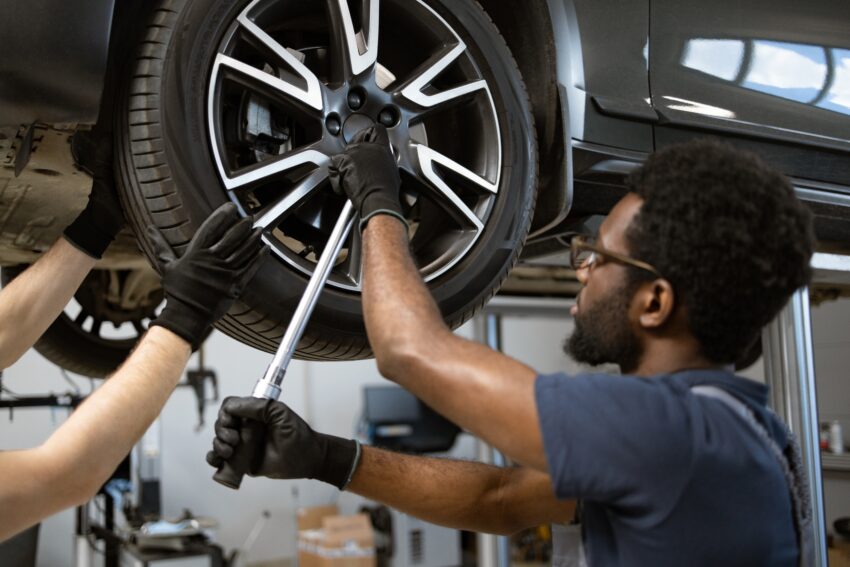How Automotive Technology Programs Revolutionize Car Maintenance
The automotive world has undergone tremendous transformations over the last few decades owing to technological advancements.
Today, cars represent complex engineered systems, the maintenance and repairs of which require a surefire opinion involving mechanical and technological know-how. Automotive technology programs equip professionals with the tools to cope with the fast-changing landscape of car maintenance. This is how the programs innovate and revolutionize the industry.
Integrating Cutting-Edge Diagnostic Tools
Modern cars have numerous sensors and onboard computers that monitor everything from engine performance to tire pressure. Automotive technology programs teach students to use modern diagnostic tools to interpret data from these systems. Such systems include an OBD-II (On-Board Diagnostics) scanner and advanced telematics, allowing technicians to determine the issue quickly and precisely. This reduces the time and cost of repairs. The technology also augments efficiency and enables the complete precision of repairs.
The Automotive Service Technician program at South Texas Vocational Technical Institute dives deeper into predictive maintenance technologies. Predictive maintenance is anticipating failure using data analytics and machine learning techniques to repair proactively. It empowers technicians to ensure that their vehicles enjoy neat operability, integrity, dependability, safety, and serviceability.
Emphasis on Electric and Hybrid Vehicles
The rise in electric and hybrid vehicles has dramatically changed the skills demanded for servicing them. Automotive technology programs now involve specialized training in electric drivetrains, battery management systems, and regenerative braking. In imparting these skills to technicians, these programs ensure the workforce is ready to take up the unique challenges these eco-friendly vehicles pose.
Other critical areas of training provided to these students are infrastructure for electric vehicles, such as charging stations and energy storage systems. Students also learn about the specifics of high-voltage systems, safety protocols, and troubleshooting approaches pertaining to EVs; thus, this rich education ensures graduates can work on the newest automotive technologies.
Software Updates and Cybersecurity Training
Connected vehicles and autonomous driving technologies bring with them another paradigm: care for maintenance of vehicles is no longer limited to the physical parts of a vehicle but also includes software updates and cybersecurity. Most automotive technology programs center around teaching their students how to apply software updates, troubleshoot connection problems, and protect cars from cyber threats. In the world we live in today, any software failure might pose a threat to the performance and safety of a car, making this training imperative.
Hands-on Experience with Simulators and Real Vehicles
One of the marks of automotive technology programs is the practical hands-on experience and emphasis. Students will use high-tech simulators and actual vehicles to put their skills to work. This tool allows students to replicate real-world scenarios as a way to allow them to troubleshoot and resolve similar issues in a controlled environment. This experiential learning offers students significantly increased opportunities to learn why there is a theory-and-knowledge-application mismatch to ensure that graduates will be job-ready on day one.
To amplify this hands-on exposure, augmented reality (AR) and virtual reality (VR) tools have been integrated into many programs. This kind of technology creates immersive training experiences that let the learner study complicated vehicle systems in detail, free from the limitations of physical components. This innovation in learning encourages growth not only in confidence but also in heightened problem-solving capacities.
Collaboration with Industry Leaders
Many automotive technology programs work with manufacturers and industry leaders to remain abreast of the latest innovations in the technology sector. Such partnerships secure the curricula’ relevance with the industry’s needs, providing students with exposure to recent tools, techniques, and trends. For example, partnerships with companies like Tesla, Ford, or Bosch allow students to learn directly from professionals and gain insight into innovative technologies.
These collaborations regularly extend to internships and co-op programs, allowing students to acquire invaluable hands-on experience. Working with seasoned employees, students can learn about the expectations profiled by the industry and best practices to nurture their potential careers.
Promoting Sustainability
Sustainability is now considered an essential component of modern car repair. Environmental-friendly practices, such as recycling vehicle components and acting to minimize waste while fixing, are high-priority subjects taught in automotive technology programs. Equally highlighted is servicing vehicles to enhance fuel economy and reduce emissions. This is now consonant with the global campaign against climate change and the promotion of responsible conduct in the industry.
Endnote
These automotive technology programs provide a germinal locus of brimming ideas intended to revolutionize car maintenance. Combining advanced interactive diagnostics, concentrating on electric and hybrid vehicles, and not just learning software skills but appreciating cybersecurity, these programs will indeed define the face of the automotive world over the ages.



